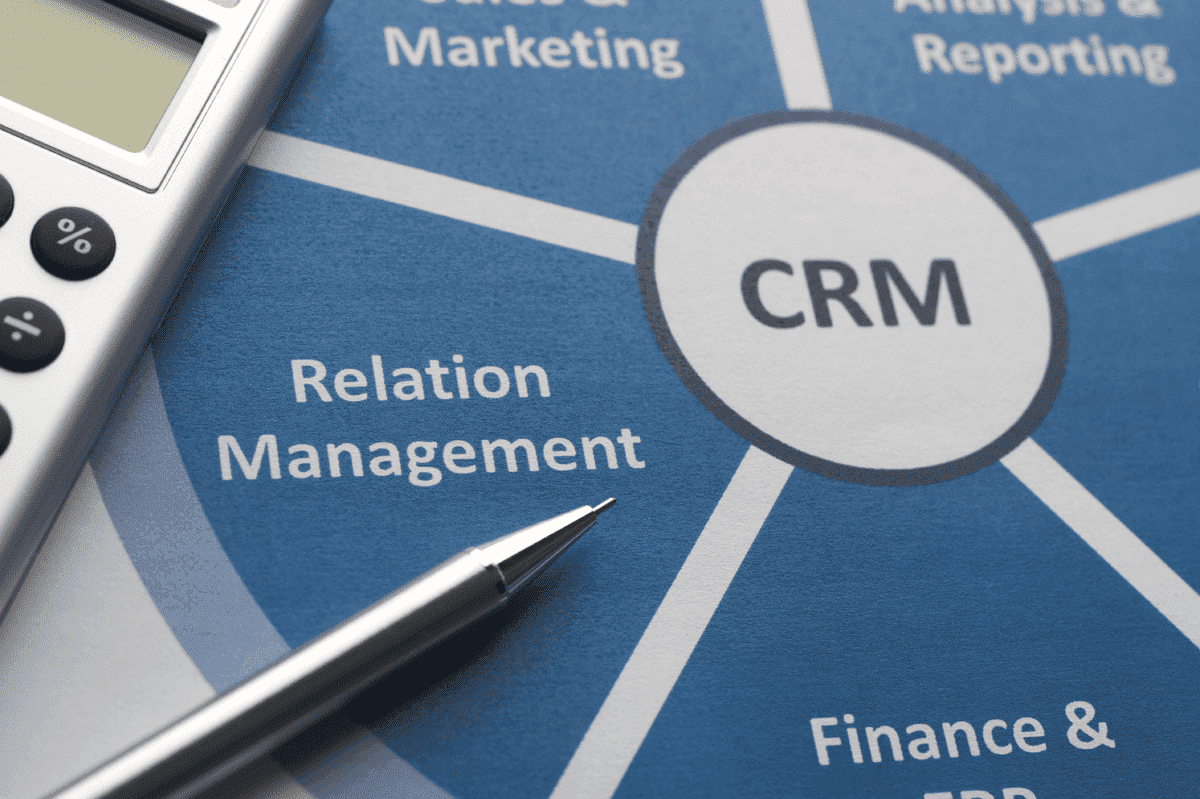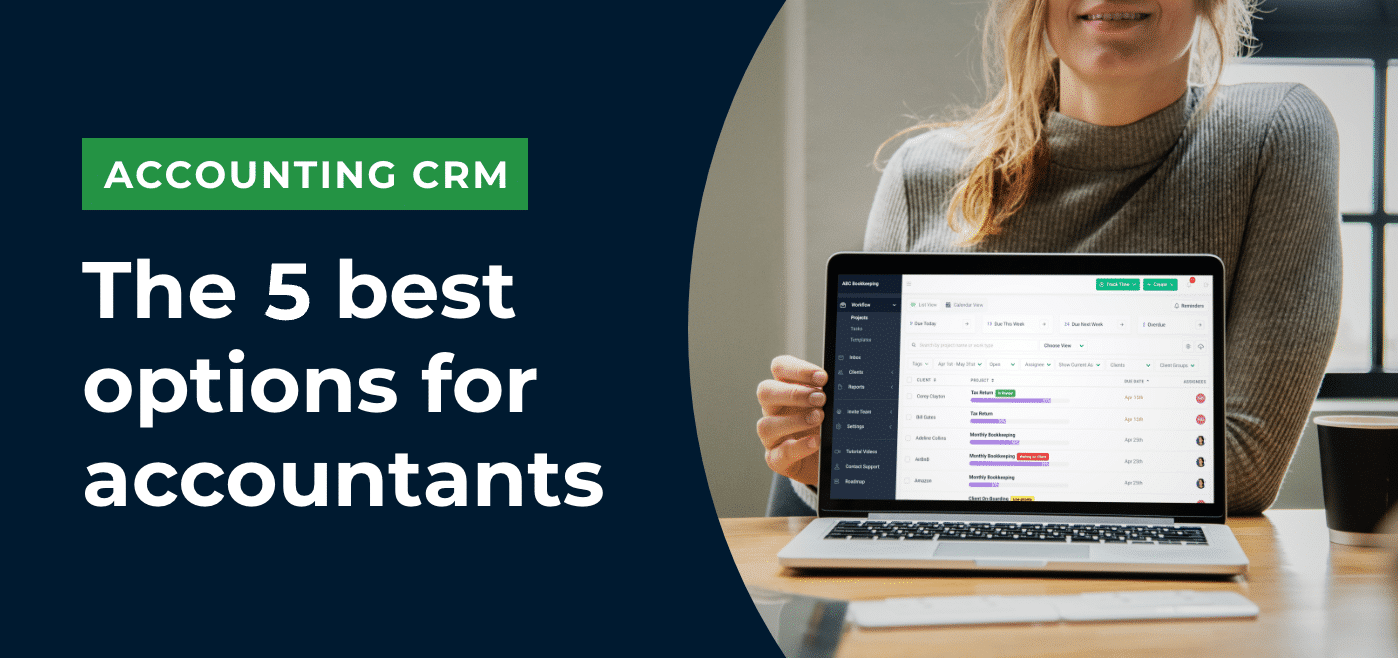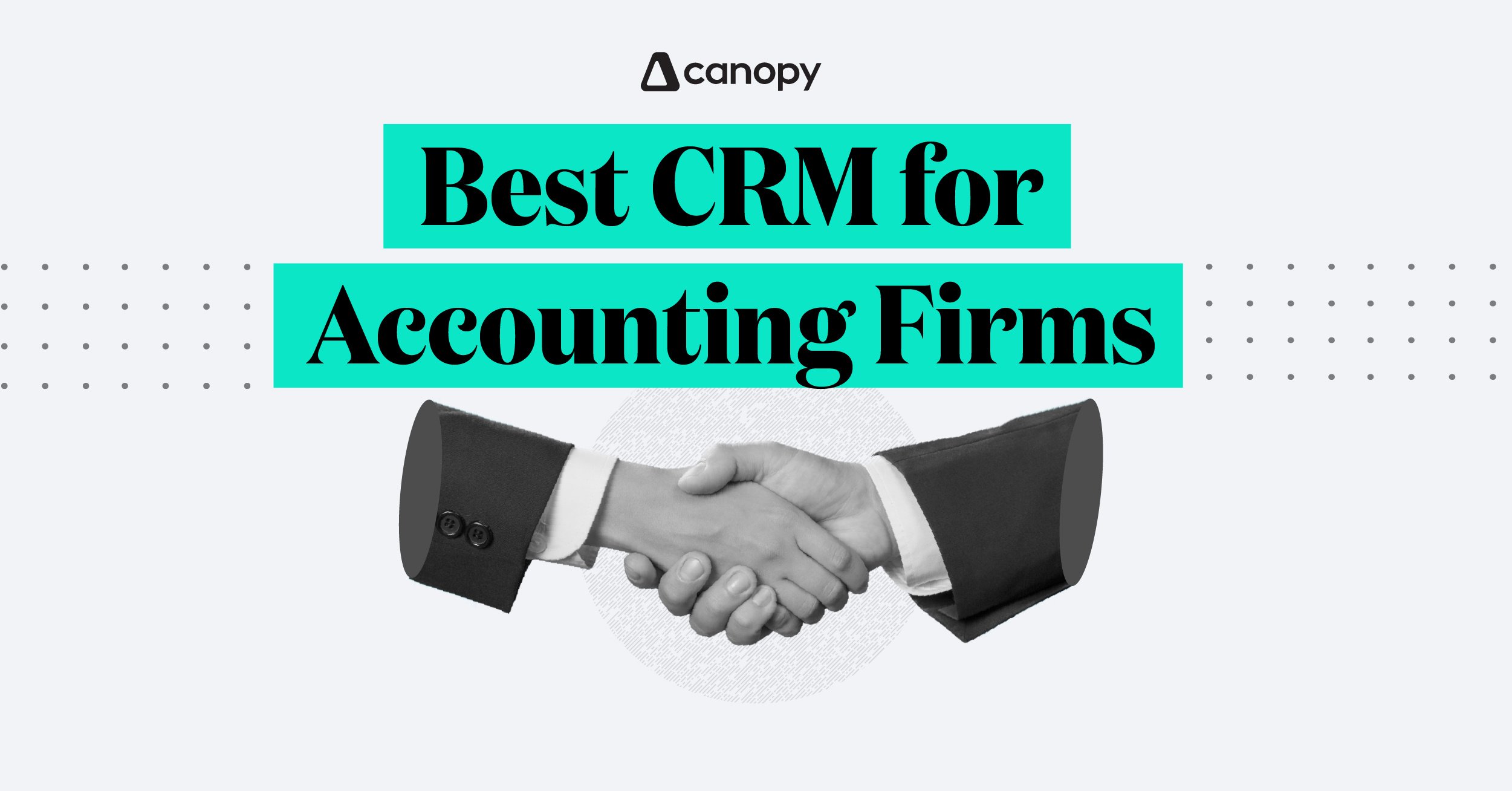crm accounting firm sets the stage for this enthralling narrative, offering readers a glimpse into a story that is rich in detail with casual formal language style and brimming with originality from the outset.
Managing client relationships in the accounting sector can be complex, but CRM systems designed for accounting firms are changing the game. These platforms help accountants organize client data, streamline communications, and automate essential workflows, ensuring every interaction is timely and professional. By integrating with popular accounting software and offering specialized features like compliance tracking, secure document management, and deadline alerts, CRMs are empowering firms to boost productivity and deliver exceptional service.
Introduction to CRM for Accounting Firms
Customer Relationship Management (CRM) systems are widely known for their role in helping businesses manage and analyze client interactions. In the context of accounting firms, CRM goes beyond standard relationship management by addressing sector-specific needs such as compliance tracking, document management, and deadline monitoring. The core focus is to streamline firm-client communication, centralize data, and automate workflow to provide a seamless client experience.
Accounting firms face multifaceted challenges in managing numerous clients and complex engagements, especially during peak periods like tax season. Unlike generic service businesses, accountants must securely handle sensitive financial information, coordinate deadlines, and maintain detailed client histories. CRM solutions for accountants are designed to meet these unique demands by organizing client data, tracking all communications, and creating a transparent workflow for staff and partners.
Optimizing Client Management in the Accounting Sector
Modern CRM for accounting firms serves as the digital backbone for client information, allowing accountants to access real-time data, respond efficiently to client queries, and ensure follow-ups are conducted on time. By consolidating all communication channels and documents within one platform, CRMs help reduce manual errors and minimize the risk of missing crucial deadlines. Automated reminders and task assignments further improve workflow efficiency, allowing firms to deliver high-quality advisory services and build long-term client trust.
Core Features of CRM Solutions for Accountants: Crm Accounting Firm
Accounting-specific CRM platforms are equipped with features tailored to optimize daily operations and support client-centric service delivery. These systems typically offer integration with accounting software, workflow automation, and secure document storage, which are crucial for maintaining regulatory compliance and efficient practice management.
Essential CRM Features for Accounting Practices
Below is a responsive HTML table detailing essential CRM features and how they benefit accounting firms:
| Feature | Description | Benefit | Example Use Case |
|---|---|---|---|
| Client Database Management | Centralizes all client details, engagement history, and contact information. | Quick access to client records, reduces duplication, improves accuracy. | Viewing previous tax filings and correspondence for a returning client. |
| Task Automation | Automates routine tasks such as reminders, document requests, and billing. | Saves time, ensures nothing falls through the cracks. | Automated reminders for quarterly tax payment deadlines. |
| Integration with Accounting Software | Connects seamlessly with platforms like QuickBooks, Xero, or Sage. | Eliminates data silos, enables consistent financial reporting. | Importing client invoicing data from Xero for follow-up through the CRM. |
| Secure Document Sharing | Encrypted storage and sharing of sensitive tax and financial documents. | Improves compliance, enhances client trust, reduces paperwork. | Clients upload signed tax forms through a secure portal linked to the CRM. |
| Deadline Tracking | Monitors key filing dates and deliverable timelines for each client. | Reduces risk of late filings, improves task prioritization. | Notifying accountants of upcoming corporate tax return due dates. |
Integration with Popular Accounting Platforms
For accountants, seamless integration between CRM and core accounting software is non-negotiable. Integration enables synchronization of invoices, payment statuses, and client communications, providing complete visibility into client relationships and financial standings. This eliminates double data entry and ensures all stakeholders have access to the most current information.
Automation Functions for Accounting Tasks
Automation in CRM transforms repetitive accounting tasks into streamlined processes. Functions such as automated email reminders, recurring invoice generation, and workflow notifications ensure deadlines are met without manual intervention. These features free up valuable staff hours, reduce stress during peak periods, and support consistent, reliable service delivery.
Benefits of Implementing CRM in an Accounting Firm
Adopting a CRM system in an accounting environment brings significant, measurable improvements across client relationships, operational efficiency, and risk management. The right CRM enhances every stage of the client lifecycle, from initial contact to ongoing advisory support, while providing transparency and accountability for every team member.
Advantages of CRM Adoption in Accounting Firms

The benefits of implementing CRM in an accounting practice are broad and impactful. CRM platforms enable better client relationship management, more efficient workflows, and stronger compliance practices.
- Improved Client Relations – Centralizing all client communications and documents fosters more personalized, timely interactions.
- Increased Workflow Efficiency – Task automation and process tracking reduce manual work and bottlenecks.
- Enhanced Compliance Tracking – Automated reminders and document management support adherence to regulatory timelines.
- Data Security – Centralized, encrypted storage of sensitive financial documents limits the risk of data breaches.
- Real-time Practice Insights – Robust reporting and dashboards allow firm leaders to make data-driven decisions.
Examples of Productivity Gains and Enhanced Service Delivery
The impact of CRM implementation is best illustrated through real-world results seen in accounting firms:
- Firms have reduced client onboarding time by 30% by automating information collection and engagement letters.
- Automated reminders have led to a 40% decrease in late filings by ensuring deadlines are met.
- Staff collaboration improved as all team members access the same real-time client data, reducing duplicate effort.
Secure Document Management and Data Privacy
Data security is paramount for accounting firms, given the sensitive nature of client information. CRM solutions bolster document management with advanced encryption, role-based access, and secure client portals. This ensures only authorized personnel handle tax documents and financial statements, aligning with industry privacy standards and fostering trust with clients.
How to Choose the Right CRM for Accounting Practices
Selecting an appropriate CRM platform is crucial to maximize operational benefits and ensure a good fit for the firm’s unique needs. Factors such as scalability, customization, ease of use, and industry-specific features play a significant role in the decision-making process.
Criteria for Comparing CRM Solutions

Evaluating CRM options requires a structured approach. The table below summarizes key criteria to consider when comparing CRM solutions for accounting practices.
| Criteria | Importance | Assessment Tip | Example CRM |
|---|---|---|---|
| Scalability | Ensures the CRM grows with your firm. | Review user limits and available add-ons. | Salesforce, Zoho CRM |
| User-Friendliness | Facilitates adoption by all staff members. | Test with non-technical users. | HubSpot CRM |
| Customization | Adapts to the firm’s unique workflows. | Evaluate custom field and dashboard options. | Capsule CRM, Insightly |
| Industry Modules | Provides accounting-specific features. | Look for modules like document management and deadline tracking. | Karbon, Jetpack Workflow |
Key Considerations for CRM Selection
It’s vital to match your CRM choice with the firm’s growth plans and operational requirements. Scalable systems accommodate firm expansion, while user-friendly interfaces promote widespread adoption. Customization capabilities ensure the CRM aligns closely with unique practice workflows and accounting-specific modules deliver direct value.
Steps for Evaluating CRM Demos and Trials
Trialing and demoing CRM platforms before purchase helps confirm system suitability with real firm workflows.
- Request demos from shortlisted vendors and involve key users in sessions.
- Test core workflows, such as client onboarding and deadline tracking, during trial periods.
- Evaluate how well the CRM integrates with your existing accounting software stack.
- Seek feedback from users and document feature gaps or usability concerns.
- Assess vendor support responsiveness and available training resources.
CRM Implementation Process in Accounting Firms
A structured approach to CRM implementation ensures a smooth transition and maximizes return on investment. Each phase, from initial planning to ongoing support, is crucial for successful adoption and sustained system value.
Step-by-Step CRM Deployment Procedure

Deploying a CRM in an accounting firm involves careful planning, configuration, and user engagement.
- Planning: Define objectives, project scope, and key success metrics.
- Vendor Selection: Compare solutions and negotiate contract terms.
- System Customization: Tailor fields, workflows, and permissions to firm needs.
- Data Migration: Import and verify client data with checks for accuracy and completeness.
- User Training: Conduct training tailored to each team’s responsibilities.
- Go-Live: Launch the CRM with live data and monitor the initial transition.
- Post-Launch Support: Provide ongoing troubleshooting and feedback channels.
Best Practices for Secure Data Migration
Migrating sensitive client data to a new CRM must be handled with strict security and accuracy protocols. Use data mapping to ensure consistency, perform multiple validation passes, and assign migration responsibilities to dedicated team members with oversight.
Implementation Timeline Example
A typical CRM implementation for an accounting firm can be illustrated in the following timeline:
| Phase | Description | Duration | Responsible Party |
|---|---|---|---|
| Planning | Set goals, Artikel project milestones, and allocate resources. | 2 Weeks | Project Manager, Partners |
| Selection & Customization | Choose CRM and tailor to firm’s needs. | 3 Weeks | IT Lead, Vendor Rep |
| Data Migration | Import, verify, and test client data. | 2 Weeks | IT Team |
| Training & Go-Live | Onboard users and transition to live system. | 1 Week | Training Lead, All Staff |
| Post-Launch Support | Resolve issues and optimize workflows. | Ongoing | Project Manager, Vendor Rep |
Use Cases: CRM Applications in Accounting Workflow
A CRM platform brings accounting workflows into a centralized, organized environment, helping firms deliver consistent, high-quality client service. By leveraging CRM capabilities, accounting teams can optimize onboarding, engagement tracking, and financial management processes.
CRM-Driven Client Onboarding and Engagement Tracking, Crm accounting firm
Effective client onboarding is crucial for accounting firms, as it sets the tone for long-term engagement. CRMs automate the collection of client data, digital signatures, and document requests, while also tracking the progress of each onboarding step. Engagement tracking within the CRM allows staff to monitor deliverables, communications, and client responses in real time.
Scenario Examples of Enhanced Communication and Follow-Up
A mid-sized accounting firm uses CRM-triggered alerts to notify managers when clients have not responded to document requests within 48 hours, ensuring proactive follow-up and minimizing project delays.
An audit team leverages CRM notes and task assignments to collaborate seamlessly, keeping all stakeholders informed of status changes in ongoing engagements.
Recurring Billing and Client Reminder Management
CRMs designed for accounting firms support recurring billing schedules and automated invoicing. Accountants can set up reminders for client payments, upcoming tax deadlines, and regular service renewals, all managed through the CRM interface. This reduces missed payments and strengthens financial control for both the firm and its clients.
Final Review
Embracing a crm accounting firm solution is more than just upgrading technology—it’s about transforming how your firm connects with clients, manages data, and adapts to future industry trends. With the right CRM in place, accounting professionals can enjoy smoother operations, stronger relationships, and the confidence that comes from efficient, secure, and innovative client management.
Top FAQs
What is a crm accounting firm?
A crm accounting firm refers to an accounting practice that uses Customer Relationship Management (CRM) software to streamline client interactions, manage data, automate tasks, and improve overall workflow efficiency.
How does CRM help with compliance in accounting firms?
CRM solutions help accounting firms stay compliant by securely storing sensitive data, tracking document changes, and providing audit trails that meet industry regulations and standards.
Is CRM software difficult to integrate with existing accounting tools?
Most modern CRM platforms offer integrations with popular accounting software, making the process straightforward. Some customization may be required, but providers often offer support during setup.
Can small accounting firms benefit from CRM solutions?
Yes, CRM systems are scalable and can be tailored to fit the needs of small accounting firms, offering affordable options that grow with the business.
How long does it take to implement a CRM in an accounting firm?
The implementation timeline varies based on firm size and system complexity, but it typically ranges from a few weeks to a couple of months, including planning, data migration, training, and testing.
